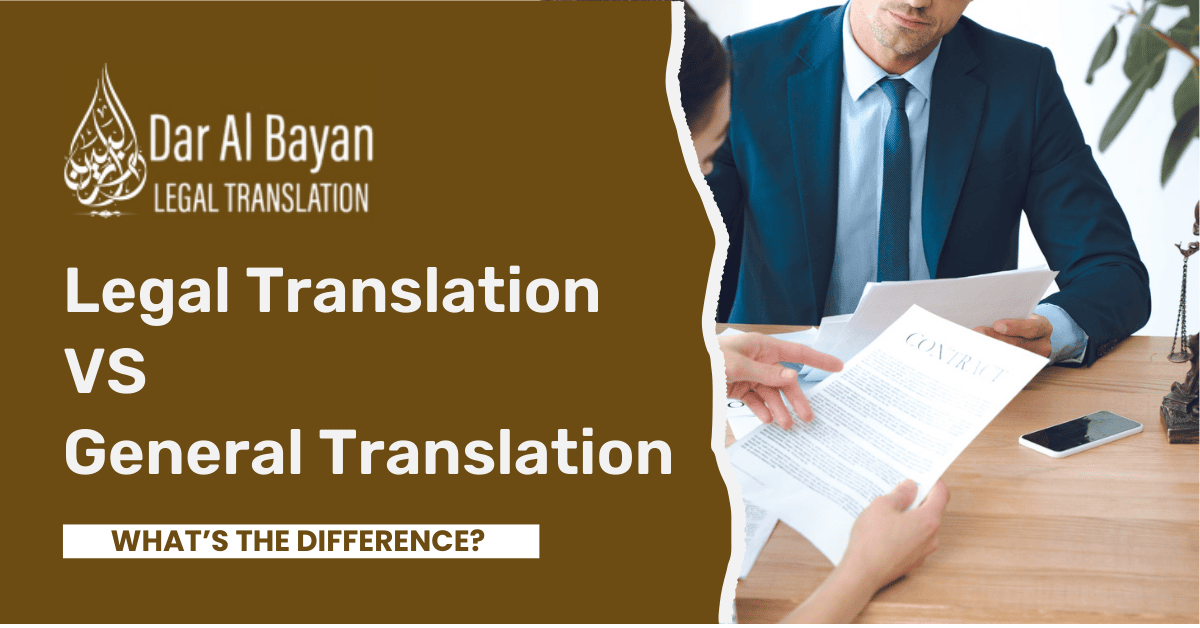
When dealing with official matters in Dubai and the UAE, understanding the difference between legal translation services and general translation is crucial. Whether you need certified translations for courts or professional translations for business, choosing the right service ensures accuracy and compliance.
What Are Legal Translation Services?
Legal translation services involve translating official documents from one language to another while preserving legal meaning, precise terminology, and official formatting. These services must be performed by a certified translator approved by the UAE Ministry of Justice to ensure validity in legal and governmental contexts.
Examples of Legal Documents:
-
Court judgments
-
Birth, marriage, or divorce certificates
-
Powers of attorney
-
Contracts and agreements
-
Immigration and visa documents
-
Notarized letters or affidavits
At Dar Al Bayan, we provide certified legal translation services in Dubai, accepted by courts, embassies, government departments, and the UAE Ministry of Foreign Affairs (MOFA).
What Is General Translation?
General translation focuses on non-legal content that doesn’t require certification. It prioritizes tone, readability, and context, making it ideal for business translation, marketing, or casual communication. Unlike legal translation services, general translation doesn’t need approval from the UAE Ministry of Justice.
Examples of General Documents:
-
Marketing materials
-
Blog posts and articles
-
Emails
-
Product descriptions
-
Website localization
This type of professional translation suits businesses aiming to engage audiences effectively.
Key Differences: Legal vs. General Translation
| Feature | Legal Translation | General Translation |
|---|---|---|
| Certification Required | ✅ Yes (MOJ-approved) | ❌ No |
| Accuracy Importance | 🔒 Extremely high | 📖 High, but flexible |
| Intended Use | Courts, embassies, official departments | Businesses, marketing, casual use |
| Translator Qualification | Certified legal translator only | Professional or fluent speaker |
| Language Complexity | Formal legal terminology | Everyday language |
When Do You Need Legal Translation Services?
You require certified legal translation services in the following scenarios:
-
Submitting documents to UAE government offices
-
Preparing for legal proceedings or immigration processes
-
Signing multilingual contracts or agreements
-
Attesting documents with MOFA for international use
For non-official needs, general translation services are perfect for website translation, document translation, or marketing content.
Dar Al Bayan offers top-tier legal translation services in Dubai and professional translation services across the UAE. Here’s why we stand out:
-
Certified by UAE Ministry of Justice: Our translations are legally recognized.
-
Fast and Accurate: Timely delivery without compromising precision.
-
Expert Translators: Native speakers with legal and industry expertise.
-
100+ Language Pairs: Comprehensive support for global needs.
-
Competitive Rates: Affordable pricing with personalized customer support.
Whether you need certified translation for official documents or business translation services for marketing, Dar Al Bayan ensures quality and reliability.
Contact Us
Let Dar Al Bayan Legal Translation handle your translation needs with confidence—whether legal or general.
📧 Email: info@daralbayantranslation.com
📱 Phone: +971563502627 / +971555655139
🏢 Visit Us: Office (209), Level 2, Commercial Bank of Dubai Building Near Sharaf DG MS – Exit 1, Al Mankhool St., Dubai – UAE
Final Thoughts
Whether you need a certified document for court or a company profile translated for your website, knowing the difference between legal translation vs. general translation helps you choose the right service. At Dar Al Bayan Legal Translation, we make both processes simple, accurate, and stress-free.
